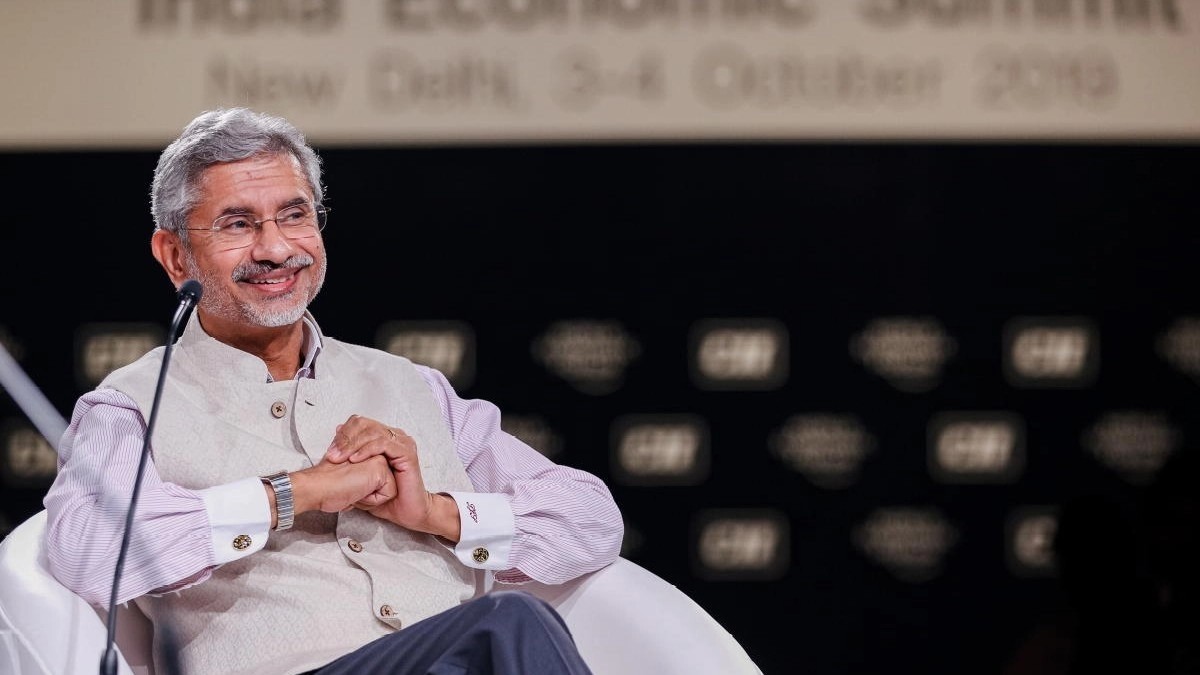
External Affairs Minister S Jaishankar.
Credit: PTI Photo
New Delhi: On the heels of his visit to Moscow, External Affairs Minister S Jaishankar spoke to Ukrainian Foreign Minister Dmytro Kuleba over the phone and agreed to relaunch the bilateral intergovernmental commission, which had its last meeting in 2018.
Kuleba updated Jaishankar about Russia’s continued military aggression against Ukraine. They also discussed about the Global Peace Summit which Ukrainian President Volodymyr Zelenskyy would host soon to drum up support for his 10-point peace plan to end his country’s conflict with Russia.
“I informed my counterpart (in the Government of India) of Russia's recent escalation of terror and mass air attacks, which caused civilian suffering and destruction (in Ukraine),” Kuleba posted on X after the phone call with Jaishankar. “We discussed further cooperation on the Peace Formula. In this regard, I informed my counterpart of Ukraine’s vision for the Global Peace Summit of leaders.”
Jaishankar recently visited Moscow and had meetings with Russian Foreign Minister Sergey Lavrov and Deputy Prime Minister Denis Manturov. He also called on Russian President Vladimir Putin. His visit to Moscow appeared to be intended to send out a message to Washington DC in the wake of the Biden administration’s allegation about the role of an official of the Government of India in an alleged plot to kill Khalistani Sikh extremist Gurpatwant Singh Pannun in New York.
“A useful conversation with FM @DmytroKuleba of Ukraine today. Discussed advancing our bilateral cooperation in the year ahead. Exchanged views on the ongoing conflict in Ukraine,” Jaishankar posted on X after speaking to the Ukrainian Foreign Minister.
They also agreed to hold the next meeting of the India-Ukraine Inter-Governmental Commission shortly. The commission had last met in 2018. “The rejuvenation of this primary mechanism of our bilateral ties will allow us to jointly move forward in a comprehensive manner,” Kuleba said.
New Delhi earlier drew flak from the US and the rest of the West for not joining the clamour against Russia after the former Soviet Union nation launched its “special military operations” in Ukraine in February 2022. India rather defied sanctions imposed by the United States and European Union on Russia and continued its bilateral trade with the former Soviet Union nation. It also increased crude oil and coal imports from Russia, raising the hackles in Washington DC and the capitals of other nations.
Prime Minister Narendra Modi’s landmark state visit to Washington DC and his meetings with United States President Joe Biden in the White House saw the US ending its technology denial regime for India to lessen the South Asian nation’s dependence on Russia for civilian and military technologies. But the row over the alleged plot to kill Gurpatwant Singh Pannun in New York again cast a shadow on India’s relations with the US.
